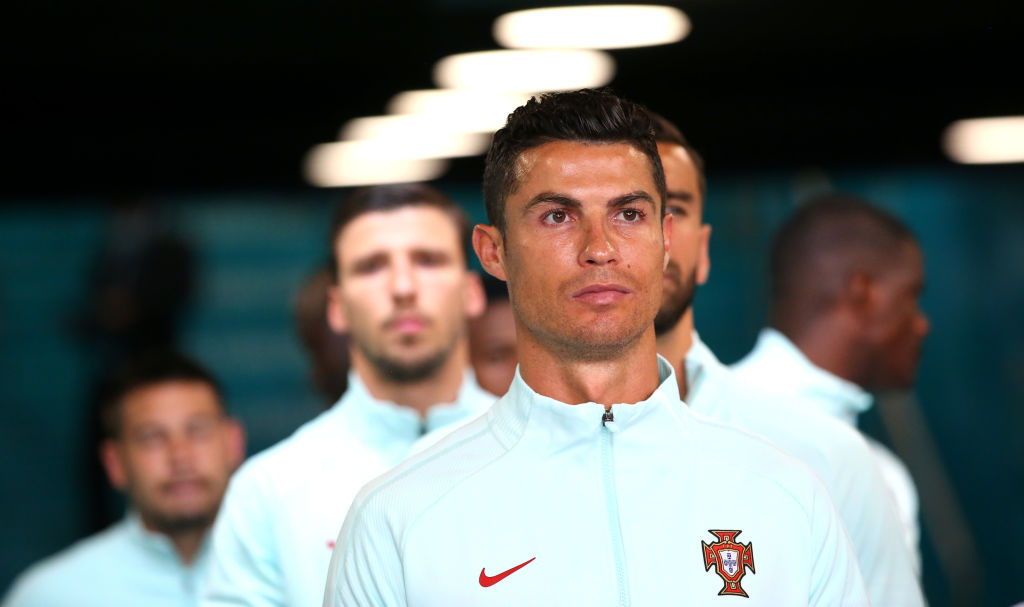
Source: Alex Livesey – UEFA / Getty
International soccer star Cristiano Ronaldo may have kicked Coca-Cola’s stock down by $4 billion in less than four seconds, a whopping 1.6% of the beverage giant’s market value, with a brief gesture at this Monday’s Euro 2020 news conference. Two bottles of Coca-Cola were on the table where the Portuguese footballer sat, and he promptly moved them aside to hold up a bottle of water as he shouted, “Agua!” He appeared frustrated with the carbonated soft drinks in front of him, and Wall Street responded in kind.
It turns out, however, that Coca-Cola is an official sponsor of this year’s UEFA European Football Championship, and a Euro 2020 spokesperson responded accordingly in a statement that acknowledged everyone has one’s own “tastes and needs.” As a matter of fact, Coca-Cola’s portfolio includes brands like Dasani, SmartWater, and Evian, among many other lines. “Players are offered water,” the representative said, “alongside Coca-Cola and Coca-Cola Zero Sugar, on arrival at our press conferences.”
Ronaldo was not the only player dismayed with the choices of beverage he was provided. The following day, French midfielder Paul Pogba sat down to a Heineken bottle on the table after his team defeated Germany 1-0. Pogba’s performance earned him the “Star of the Match” award, which is sponsored by the multinational beer company. Pogba is a practicing Muslim, though, and alcohol is disallowed per his faith (besides the fact it is also well known as a dehydrator).
This pair of incidents has led the media to dub the episodes “Bottlegate.” Redburn analyst Charlie Higgs explained to Bloomberg that teaming up notables with products to gauge market reaction is nothing new. With stars’ increased visibility and massive sway, though, the maneuver can present as a double-edged sword. “Aligning brands with celebrities is a tried-and-tested way of recruiting new consumers, but it comes with added risk,” he said. “This risk is persistent and larger now than ever before thanks to the prevalence of social media.”
















